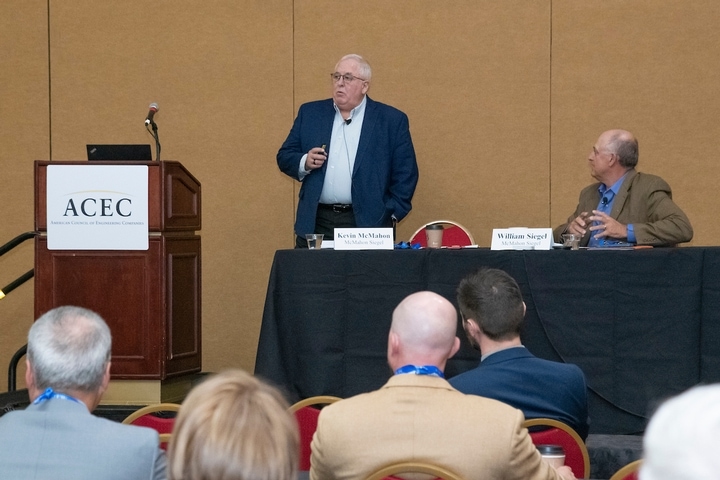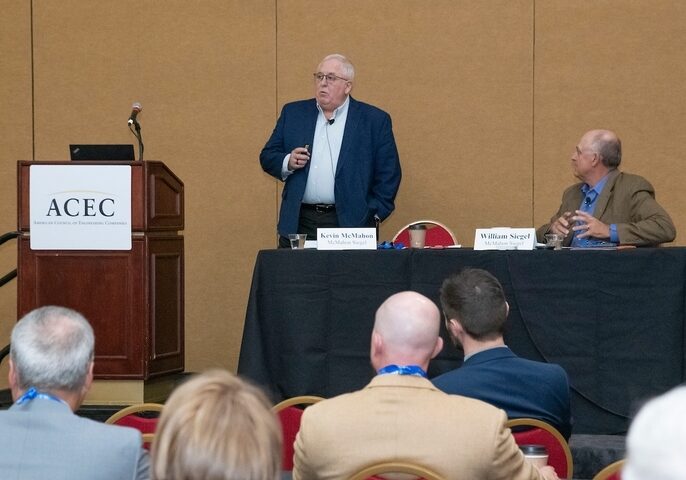October 25, 2022
How Member Firms Can Mitigate Inflation Impact

William Siegel and Kevin McMahon of the McMahon | Siegel Group offered insights for a packed ACEC Fall Conference crowd on the current inflationary cycle, what architectural and engineering (A/E) firms can expect, and how to position themselves to flourish.
With over 80 years of combined experience specializing in mergers and acquisitions, Siegel and McMahon provided unique insights into the workings of today’s economy and how that might affect A/E firms.
Among several actions, they said that businesses can take to protect themselves in an inflationary economy include “analyze everything for risk and seek ways to “de-risk immediately from clients, markets, and labor.”
The pair also suggested using scenario planning to “honestly address your risks and make sure you have accounted for all future required cash flows. Factor in inflation especially for labor, and what you think you can recover from your clients.”
“We’ve had it good,” Siegel said, while displaying Federal Reserve Economic Data chart with inflation data stretching back to 1960. It showed that since 1984 the inflation rate has been in a slow and steady decline until a sudden, sharp increase beginning in 2020.
While architectural and engineering firms are often somewhat insulated from recessionary pressure, they are particularly affected by inflation because they rely on materials that are becoming increasingly expensive. Beyond the cost of materials, other drivers of inflation––monetary and fiscal policy, supply chain disruptions, and industry-specific factors––are all impacting A/E firms.
They include supply chain disruptions caused by lockdowns, illness, death, and staff reductions in manufacturing and shipping. The price of goods and materials responded significantly at every step of the supply chain.
Industry-specific factors include increased production costs and the shortage of engineers seeking positions in the architecture and engineering fields. This shortage has increased costs as firms compete to attract and keep talent.
Their bottom line was that businesses can always take measures to adjust to changing market conditions. By being agile and responsive, firms can indeed minimize the effects of inflation or recession on their bottom line.
All comments to blog posts will be moderated by ACEC staff.







